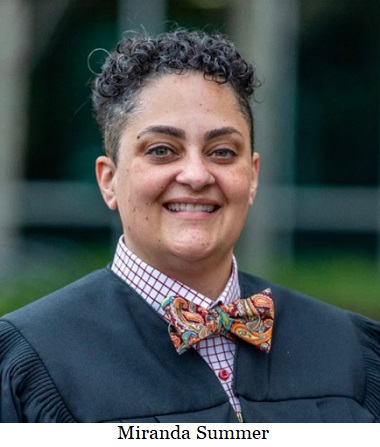
On this day, August 27, 2019, jet-car speed racer 30-year-old Jessi Combs, known by fans as the "fastest woman on four wheels," died in a crash in the Alvord Desert in Southeastern Oregon while trying to break a speed record.
 Post an Event
Post an Event
| Benton County Republicans’ Private Fundraising Event, “Bent-on Boots and Bling” with Trey Taylor |
| Friday, September 5, 2025 at 5:00 pm |
| Featuring Trey Taylor
Music Private Event
Friday, September 5, 2025 5:00-5:30 pm VIP Reception
5:30-8:00 pm Heavy Appetizers,
Auction, Concert
Red: $750 VIP Reception
Front Row Table Sponsor
White: $500 Table Sponsor
Blue: $50 per person
Limited Seating. Get Yours Now!!!
Support Local
Dress up: Bling, Cowboy, Patriotic Benton County Republican
FUNDRAISER
www.BentonGOP.org
Get your tickets today at:
https://www.bentongop.org/event-details/benton-county-republicans-fundraiser/form
About Trey:
Trey is the youngest African American Man in Country Music History. The Denver Post wrote
"It's impossible to miss his enthusiasm. With a fondness for cowboy boots, gaudy colors and dazzling jewelry, Trey Taylor could stand toe to toe with any of the Pop, Country or even Rap
contemporaries of his generation.“ |
| Trysting Tree Golf Club, 34028 NE Electric Rd., Corvallis |
Deadline for filing is Tuesday, March 8
Beaverton, Oregon residents interested in running for election to the Beaverton City Council can now obtain a Candidate’s Filing Handbook.
Four City Council positions elected at-large are open. The deadline in filing is Tuesday, Mar. 8 at 5 p.m.
Councilor Positions 1, 2 and 5 will be nominated at the Primary Election and elected at the General Election to serve a four-year term.
At the Primary Election, the two candidates with the most votes for each position will proceed to the General Election ballot. If one candidate receives a majority of all votes cast, then that candidate alone is nominated to the General Election Ballot. The candidate with the majority of votes at the General Election is elected.
Councilor Position 3 is a vacant position due to resignation with three years remaining on the unexpired term for this office.
Candidates must be 18 years of age by the election date, a qualified elector of the state, and have lived in city limits six months prior to the election date.
A D V E R T I S E M E N T

A D V E R T I S E M E N T
The Candidate's Filing Handbook with requirements for petition and signatures can be obtained from the City Elections Office at Beaverton City Hall (12725 SW Millikan Way) or
online.
The Primary Election is May 17, 2022 and the General Election is Nov. 8, 2022.
--Bruce Armstrong| Post Date: 2022-01-27 14:47:02 | Last Update: 2022-01-27 15:01:07 |
Proposal comes from Oregon Republicans
Oregon State Representative Mark Owens (R-Crane) is introducing a bill during the
2022 Legislative Session that will restore the balance of power in Oregon’s government.
“This is really about transparency and a balance of power,†said Representative Owens.
“Oregonians are growing tired of Governor Brown’s never-ending emergency and a rule-
making process that they don’t understand. We need to introduce sensible limits to the
power of the Governor’s office in our state.â€
HJR 206, introduced by Representative Owens with bicameral support, would refer to
the voters the option to vote to amend the Oregon Constitution to limit the Governor’s
ability to declare an emergency or exercise powers under the declaration of emergency
to only those granted by the law and for 30 days. This resolution would bring better
balance to Oregon’s government which currently concentrates a large amount of
authority in a single office.
The ongoing COVID-19 pandemic has resulted in strict government mandates and
regulations, dictating how people can live their lives, all directed by the Governor’s
Office through the Oregon Health Authority. Oregonians have become discontent with
rules like a permanent indoor mask mandate and want more transparency in the
decision-making process.
A D V E R T I S E M E N T

A D V E R T I S E M E N T
“It’s time for accountability and fairness in how these decisions are made. One sole
person should not have ultimate and unchecked authority when it comes to determining
the rights and freedoms of Oregonians.â€
--Bruce Armstrong| Post Date: 2022-01-27 14:23:48 | Last Update: 2022-01-27 14:34:44 |
Miranda Summer appointment is effective immediately
Oregon's Governor Kate Brown has announced that she will appoint Beaverton Municipal Court Judge Miranda S. Summer to the Washington County Circuit Court.
Summer will fill the Washington County vacancy created by Judge Ramón Pagán’s recent elevation to the Oregon Court of Appeals.
Her appointment is effective immediately.
“Miranda Summer is a talented and compassionate judge, who has earned the respect of litigants and lawyers alike,†Governor Brown said. “She brings an invaluable set of professional and lived experiences to the bench, and will serve the people of Washington County well.â€
Summer currently serves as a judge on the Beaverton Municipal Court, where she adjudicates criminal and traffic violation cases.
She also has served as a pro tem judge on the Washington County Circuit Court and as an administrative law judge for the Office of Administrative Hearings. Previously, Summer practiced as a family law attorney.
A D V E R T I S E M E N T

A D V E R T I S E M E N T
She currently serves on the boards of the Washington County Bar Association and the Oregon Minority Lawyers Association, and has served as a member of the Oregon State Bar’s Diversity and Inclusion Committee.
Summer was interviewed last year by the Governor’s Office as a finalist for Governor Brown’s most recent judicial appointment on the Washington County Circuit Court.
--Bruce Armstrong| Post Date: 2022-01-27 11:26:46 | Last Update: 2022-01-27 11:36:39 |
"Pharmacies are being double taxed"
Oregon State Representative Anna Scharf (R-Amity) is putting her efforts for the 2022 Legislative Session into a necessary Corporate Activity Tax exemption because of the impact it has on access and affordability of prescription drugs in Oregon.
HB 4094, which has bipartisan and bicameral support, would exempt pharmacies from paying CAT because they already shoulder the burden of higher prices when pharmaceutical companies pass the cost of CAT down to them. Pharmacies cannot adjust prices, resulting in slim cost margins that have forced pharmacies to close and hurt consumer options.
“Since the passage of
HB 3427 in 2019, the CAT has seen multiple industries and business sectors requesting to be carved out due to the unintended burdens it placed on them,†said Representative Scharf. “Drug wholesalers and manufacturers are able to pass along the impact of the CAT to pharma by increasing the cost of drugs sold to the pharmacy. However, the pharmacy is unable to pass along any of the cost tax burden to the consumer. Pharmacies are being double taxed as they have to pay the taxes of the drug suppliers and again pay the CAT when they sell the drugs.
A D V E R T I S E M E N T

A D V E R T I S E M E N T
“This is not the first time this exception for pharmacies has been requested. However, with the closure of Bi-Mart pharmacies and many other small local pharmacies on the verge, coupled with the increased demands on pharmacies brought on by COVID19, now is the time to pass HB 4094.â€
--Bruce Armstrong| Post Date: 2022-01-26 17:14:47 | Last Update: 2022-01-26 17:24:41 |
“Most people contracting and spreading the virus are vaccinatedâ€
Yamhill County Commissioner Mary Starrett will be spearheading a wide discussion of how Yamhill County provides information about COVID-19 to the public. A public discussion is scheduled for Thursday, January 27 at the 10:00am Board of Commissioners Meeting. Public comment won't be taken at the meeting, but public testimony will be accepted at
bocinfo@co.yamhill.or.us. In
emails made public, Commissioner Starrett appears to be driving significant changes.
Commissioner Starrett is leading a push for more accurate and balanced information about COVID-19 on the Yamhill County website in order to "present a more balanced approach to the prevailing COVID narrative on our County website and more specifically include VAERS data analyses, breakthrough data, PCR CT, hospitalizations and deaths ‘with’ vs ‘from’ COVID as well as prevention and early treatment protocols."
VAERS is the federally managed
Vaccine Adverse Event Reporting System. Established in 1990, VAERS is a national early warning system to detect possible safety problems in U.S.-licensed vaccines. VAERS is co-managed by the Centers for Disease Control and Prevention and the U.S. Food and Drug Administration.
Some of the topics that Starrett wishes to be on a FAQ page include:
- Natural Immunity Data
- What constitutes a breakthrough case?
- Has the CDC stopped reporting breakthrough hospitalization and death data?
- Is Comirnaty Fully Approved by the FDA?
- Statement that COVID shots available in the U.S. are experimental products
- Safety questions are all unanswered and some will not be answered until 2027
- Studies on safety of COVID-19 injections during pregnancy will not be completed until 12/31/25
A D V E R T I S E M E N T

A D V E R T I S E M E N T
In a memo to staff, Commissioner Starrett says that "the term, “safe and effective,†is an FDA term that can only be applied to licensed drugs and vaccines. Since none of the COVID shots given is actually licensed, they are, by definition, experimental or investigational. Besides, trials have not yet concluded for any of the vaccine makers. They’re all ongoing." She's asking that the term “safe and effective†be removed from the County website.
Starrett is also asking that the County remove a statement which says, “We strongly recommend that all Yamhill County residents get the COVID-19 vaccine as a protective measure for themselves and others. Getting vaccinated prevents severe illness, hospitalization, and death. It also reduces the spread of the virus in our communityâ€. According to Commissioner Starrett, "This has been proven incorrect as most people contracting and spreading the virus are vaccinated."
In addition to changes in information on the website, Commissioner Starrett is making a request that Yamhill County provide informed consent before administering the shot, saying, "There is no adequate disclosure form given before the shot. It is impossible to make an informed decision about the COVID shots until the public has open access to all safety and efficacy data, including VAERS analysis and V-safe.
The Board of Commissioners meeting can be viewed at
https://www.youtube.com/channel/UCKfoZQSvH1V2JrpU3nFCgIA.
--Staff Reports| Post Date: 2022-01-25 15:11:39 | Last Update: 2022-01-26 09:35:04 |
“PPB believes the technology supports 21st Century Policingâ€
The Portland Police Bureau under Chief Chuck Lovell has moved forward in acquiring body cameras for its officers, asking that vendors provide
sealed competitive proposals to provide this technology. This program is expected to be implemented in 2023.
In a press release, the PPB said "Having followed the evolution of body-worn camera technology for several years, PPB believes the technology supports 21st Century Policing and will enhance the community-police relationship by providing additional transparency into the daily operations of the Police Bureau."
During the 2021 Session, the Oregon Legislature asked the Oregon Criminal Justice Commission to study the use of body cams by police in
SB 668. The CJC has been
positive on the use of body cams but cites cost as a downside. The cameras themselves are not that expensive, but the storage, management and review of literally thousands of hours of video each month becomes costly.
Body-worn camera systems will also build community trust, which is essential to effectively serving a city of Portland's size, diversity, and complexity. Body-worn cameras will provide police officers and community members with greater accountability and a better understanding of critical events of public concern. Additionally, body-worn camera systems will facilitate fair and transparent adjudication of criminal and civil matters.
To that effect, PPB is currently seeking competitive proposals from qualified Vendors with demonstrated experience in Law Enforcement Body Worn Cameras.
According to a US Department of Justice
bulletin published in 2016, almost half of all police departments had body-worn cameras .
--Staff Reports| Post Date: 2022-01-25 09:15:29 | Last Update: 2022-01-25 10:07:01 |
Is the fourth candidate to withdraw
Jim Huggins, a Lt. Colonel in the Auxilliary Air Force and movie producer,
withdrew from the race to become Oregon’s next governor.
“We’ve got the right
message, and we’ve got the right plan,†Huggins said, “but we don’t have the
donor, volunteer, and organizational infrastructure we need to punch through a
crowded primary candidate field and position ourselves to win a general
election.â€
Huggins is the fourth candidate to withdraw from the crowded governor’s race
and the second Republican. Monte Sauer Jr withdrew as a Republican candidate,
and Nico Pucci and Casey Kulla withdrew from the Democrat lineup.
Kulla
withdrew to run for Commissioner of the Bureau of Labor and Industries.
Huggins’ campaign was largely based on four issues including getting tough on
crime, reducing homelessness, opposing the weakening of Measure 11
sentencing, and strengthening parental control over the direction of their
children’s education.
He continues to believe, as his internal polling shows, that
these issues can unite conservatives, non-affiliated voters, and moderate
Democrats to create an opportunity to end the Democrat stranglehold on the
governor’s mansion that has leg Oregon so far from what it can be.
A D V E R T I S E M E N T

A D V E R T I S E M E N T
“There are many ways to have an impact on elections and impact on public policy
apart from being elected governor that doesn’t require millions of dollars and out
of state consultants,†Huggins said. “I am not going away. Oregon can and must be
saved from bad leadership by advancing the principles of individual freedom and
personal responsibility in government. Such principles bring out the best in all of
us.â€
The machine of campaigning is complex, and good candidates are lost to the
process of learning the wheel. Media can bury a candidate as fast as a lack of
funding.
The remaining 17 Republicans and 11 Democrats need a self-evaluation
and not bog down the wheel.
--Donna Bleiler| Post Date: 2022-01-24 17:35:59 | Last Update: 2022-01-24 17:44:04 |
“Democrats are in the business of protecting the teachers’ unionsâ€
Today marks the beginning of National School Choice Week. The week is dedicated to the stories of students and families who have found the best school for them.
Research shows that students in states with more educational opportunities perform better on key educational attainment metrics.
According to State Senator Dennis Linthicum (R-Klamath Falls), the abysmal state of public education in Oregon is well documented. Just last week, The Department of Education
revealed that graduation rates slid backward compared to the previous year. Last year,
Democrats voted to abolish graduation standards that required students to demonstrate proficiency in reading, writing, and math because Oregon students do worse on reading and writing tests than students in 43 other states. Oregon was among the last 2 states in the nation to reopen schools, harming Oregon students, their mental health and their opportunity for a real education.
Yet, last week, Secretary of State Shemia Fagan unilaterally
denied voters a voice on a constitutional amendment to grant educational opportunities for their children.
“Democrats have made it clear that they are in the business of protecting the teachers' unions’ monopoly on education because union bosses fund their campaigns,†said Senator Linthicum. “Their ideas of ‘reform’ are throwing more money at a failing system while lowering any traditional performance standards. They are protecting a system that allows wealthy families to have a choice, while lowincome and our most vulnerable are trapped in failing schools.â€
A D V E R T I S E M E N T

A D V E R T I S E M E N T
Oregon has some of the most restrictive education laws in the country. Despite the limited options available to students and families outside of government-run schools, Oregonians are making it clear they are desperate for alternatives. During the pandemic, Oregon saw the
4th largest increase in charter school enrollment in the nation. A recent
survey shows that more than half of American families are looking for a new school. Support for educational opportunities
soared during the pandemic.
In the upcoming legislative session, Senator Linthicum will reintroduce
SB 657, legislation to increase the cap on virtual charter school enrollment. This bill will allow more children to choose an education that best fits their needs and will be assigned
Senate Bill number 1552 during the 2022 short session.
“This bill is just the beginning of the work that needs to be done to empower parents and students,†said Linthicum. “The artificial cap on virtual charter school enrollment caps children's futures. It's outdated, and needs to change. The money that funds education in this state doesn’t belong to schools. It belongs to Oregonians. The money should follow students and fund their educational needs, not prop up the dismal state of our current system. â€
--Staff Reports| Post Date: 2022-01-24 16:43:38 | Last Update: 2022-01-24 18:15:29 |
Judges for the Oregon Supreme Court and the Oregon Court of Appeals are normally elected
Governor Kate Brown has announced that she will appoint Judge Roger J. DeHoog, a Democrat, to the Oregon Supreme Court, as well as Judge Ramón A. Pagán, Kristina Hellman, and Anna M. Joyce to the Oregon Court of Appeals. DeHoog is a judge on the Court of Appeals, and will fill the Supreme Court vacancy created by the retirement of Justice Lynn R. Nakamoto. Pagán is a judge on the Washington County Circuit Court, and will fill the vacancy created by DeHoog’s elevation to the Supreme Court. Hellman is an attorney in the Federal Public Defender’s Office, and will fill the vacancy created by the retirement of Judge Rex Armstrong. Joyce is currently a shareholder at the Markowitz Herbold law firm, and will fill the vacancy created by the retirement of Judge Joel DeVore. All four appointments are effective immediately.
Judges for the Oregon Supreme Court and the Oregon Court of Appeals are normally elected, but if they retire part way through their term, the Governor appoints their replacement.
"Each of these highly qualified individuals brings a skill set and perspective informed by years of legal experience,†Governor Brown said. "I am grateful to this talented, diverse group of judges and lawyers, for stepping up to serve our state and administering justice on behalf of the people of Oregon.â€
DeHoog served as a trial judge on the Deschutes County Circuit Court from 2012 to 2015, before his appointment to the Court of Appeals. Prior to his judicial service, DeHoog practiced as a Deschutes County public defender from 1993 to 2000, and handled criminal defense and domestic relations cases while in private practice in Bend from 2000 to 2007. In 2008, DeHoog joined the Oregon Department of Justice’s Special Litigation Unit, which handles major state litigation on a variety of matters, including litigation on environmental, constitutional, and consumer protection laws. DeHoog received his bachelor’s degree from Dartmouth College, and his J.D. from the University of Oregon Law School. DeHoog serves on the Judicial Conduct Committee, is the former chair of the State Bar Constitutional Law Section Executive Committee, and is on the Oregon Council on Court Procedures. In addition, he serves on the board of NeighborImpact, a community action agency serving Central Oregon. He will be the second Asian Pacific American ever to serve on the Oregon Supreme Court, and is the only judge on either of Oregon’s appellate courts from outside the Willamette Valley.

Pagán has served as a Washington County Circuit Court judge since 2016, and served as the chief judge of the court’s family law bench from 2018 to 2021. Before his appointment to the trial court, he was a criminal defense attorney in private practice from 2004 to 2016, including as an associate attorney at Janet Hoffman & Associates LLC. While he was in law school, Pagán served as a law clerk for Sonia Sotomayor, who was then a judge of the Second Circuit Court of Appeals and is currently an Associate Justice of the U.S. Supreme Court. After graduating from law school, he worked as a staff attorney at the Second Circuit Court of Appeals, and then at civil and criminal firms in New York prior to settling in Oregon. Active in his community, Judge Pagán has taught trial advocacy at Lewis & Clark Law School in Portland and the Fordham University School of Law in New York, and serves on the Judicial Conduct Committee, the Oregon State Bar Professionalism Committee, and the Literary Arts board of directors. He is a graduate of Arizona State University and the Fordham University School of Law.

Hellman has been an assistant federal public defender for the Federal Public Defender’s Office in Portland, where she currently serves as a supervising attorney. Hellman represents clients in federal habeas corpus cases who are challenging their Oregon state convictions on federal constitutional grounds. Prior to joining the Federal Public Defender’s Office in 2002, Hellman served as a law clerk for U.S. District Court Judge Edward C. Reed in the District of Nevada. In addition to her law practice, Hellman has taught as an adjunct professor at Lewis & Clark Law School, served as a board member of the Oregon Chapter of the Federal Bar Association, and has coached the Franklin High School Constitution Team. She earned her bachelor’s degree from the University of Michigan, and her J.D. from Georgetown Law School.

Joyce, a shareholder at the Markowitz Herbold law firm in Portland, is regarded as one of the state’s top appellate lawyers. She has argued hundreds of appeals before Oregon’s appellate courts and the Ninth Circuit Court of Appeals, and has briefed cases before the U.S. Supreme Court. Before joining the Markowitz firm, Joyce practiced in the Appellate Division of the Oregon Department of Justice from 2003 to 2015, and served as Oregon’s Solicitor General. Her practice at Markowitz focuses on complex civil litigation motions and appeals, and she recently served as the managing shareholder. Among her many community and bar activities, Joyce has taught appellate advocacy at Lewis & Clark Law School, is a mentor for the Oregon State Bar New Lawyer Mentoring Program, and serves on the board of directors for Outside In. Joyce began her legal career as a law clerk for Oregon Court of Appeals Judge Rives Kistler. She received both her bachelor’s degree and her J.D. from the University of Oregon.
--Staff Reports| Post Date: 2022-01-23 07:53:48 | Last Update: 2022-01-23 08:43:38 |
“The Court’s decision in this case will establish precedentâ€
Oregon may be becoming a political playground for rich liberal elites -- even from out of state. Former New York Times columnist and CNN pundit, Nicholas Kristof, fresh from disqualification from the Oregon Democrat gubernatorial primary has taken his appeal to the Oregon Supreme Court, and though most public offices will decline comment on pending cases, Oregon Secretary of State Shemia Fagan is glad to argue her side in the press.
According to a release put out by Secretary Fagan -- who is also an attorney -- "Objective facts demonstrate that until late 2020, Mr. Kristof’s primary residence was in New York. His legal arguments are impossible to square with the Oregon Constitution’s equitable standard and would lead to special treatment for well-connected candidates."
The Oregon Department of Justice, led by Oregon Attorney General Ellen Rosenblum, filed a brief with the Oregon Supreme Court on behalf of Secretary of State Shemia Fagan, asking the Court to uphold the Elections Division’s January 6 disqualification of Nicholas Kristof as candidate for Oregon Governor.

Article V, section 2, of the Oregon Constitution states that a candidate must be a “resident within†Oregon for the three years before the general election.
“My focus throughout this process has been to make sure Oregonians can trust the accuracy of their ballots,†Secretary Fagan said. “I have a duty to Oregon voters to make sure every candidate on their ballot is qualified to serve.â€
Secretary Fagan Continued, “The Court’s decision in this case will establish precedent for hundreds of decisions local elections officials make every year about what it means to be a “resident†for purposes of running for political office. It’s clear that the framers of the Oregon Constitution understood that residency means an Oregon “domicile,†and that you can only have one domicile at a time. Not only do the objective facts demonstrate that Mr. Kristof was not domiciled in Oregon until late 2020, his legal arguments are impossible to square with an equitable standard for future candidates. They would create irrational results. For example, under the rule Mr. Kristof proposes, a person would be eligible to run for Governor, or serve as Governor, in two different states at the same time.â€
In the
77 page brief, Secretary Fagan makes the following points:
At issue is the definition of “resident within†Oregon. When the Constitution was written, residency meant domicile (living permanently) in Oregon. Contemporaneous legal definitions, case law, and even the own words of delegates at Oregon’s Constitutional Convention support this commonsense definition. This long-established standard was placed in the Constitution to ensure candidates had some stake in our state’s political and civic life. It’s clear they did not intend to allow a person to serve if they had been a permanent resident of another state during the years just before their election. The brief refers to this as the “domicile test."

Objective facts demonstrate that Mr. Kristof fails the domicile test. Until December 2020, Mr. Kristof’s primary residence — his legal domicile — was in New York. These facts include: Voting in New York from 1999 through the November 2020 election; Centering his professional and personal life in New York, where he owned a home he used as a base for his job at the New York Times, where he returned to after international travel, and where he enrolled his children in school; Maintaining a driver’s license in New York even though New York law only requires in-state licenses for permanent residents; and Paying income taxes in New York from 1999 to 2020. Based on all the facts before them, elections officials correctly determined Mr. Kristof did not meet the residency requirements to run for Governor of Oregon in 2022 and should not appear on the ballot.
Mr. Kristof makes three arguments for his inclusion on the ballot, but all fail to identify a workable standard that applies fairly to everyone. The
Secretary’s brief states:
1) [Mr. Kristof] repeatedly [invokes] his status as a “frontrunner†in the gubernatorial race, as a person who has raised millions of dollars, and as a person who has numerous supporters...Embedded in this “frontrunner†standard is [Mr. Kristof’s] argument that the Court should “let the voters decide.†But this court should strongly reject the implication that a person’s popularity, wealth, or political clout is relevant to whether they are “resident within†Oregon. The Elections Division and local elections officials apply the same rule to all candidates no matter how known or unknown they are, and regardless of how many residences they own, if they own a residence at all, or if they are houseless. Adopting the rule [Mr. Kristof] appears to propose would enable a grave injustice, in which “the voters decide†for well-resourced and well-connected candidates, and other candidates are held to a more exacting standard. (Page 31)
A D V E R T I S E M E N T

A D V E R T I S E M E N T
2) [Mr. Kristof] contends that a person who owns homes in multiple states could be “resident within†Oregon without being domiciled there. But that rule produces irrational results. It would allow a person to be elected Governor of Oregon while continuing to vote and live out of state. Even more counterintuitively, that person could run for Governor of two different states at the same time. Construing residency so broadly that it allowed those scenarios would undermine the reasons for adopting any residency requirement at all. (Page 31)
3) [Mr. Kristof also] suggests that he should be considered “resident within†Oregon because he feels a deep connection to the state … But no filing officer could ever make consistent, fair determinations about a candidate’s qualifications for office based on such subjective, transitory facts. (Page 32)
The Elections Division’s decision to disqualify Mr. Kristof was made by an experienced elections professional who has served Oregon for nearly two decades, working on residency determinations under the last six Secretaries of State. Her decision was based on the objective facts he provided and which were publicly available and known to the Elections Division. The decision was not unusual. On the contrary, it is a common, and often uncontroversial occurrence for elections officials to determine that a candidate does not meet residency and/or other requirements and cannot appear on the ballot. The Elections Division disqualified ten other candidates in the past year, including six other candidates for Governor.
"The rules are the rules and they apply equally to all candidates for office in Oregon,†Secretary Fagan said. “I stand by the determination of the experts in the Oregon Elections Division that Mr. Kristof does not currently meet the Constitutional requirements to run or serve as Oregon Governor.â€
--Staff Reports| Post Date: 2022-01-22 12:21:24 | Last Update: 2022-01-22 13:03:05 |
Andrea Bell will serve as Acting Director
Governor Kate Brown
has named Andrea (on-DRAY-uh) Bell as Acting Director of Oregon Housing and Community Services (OHCS).
Bell serves currently as the Director of Housing Stabilization, where she is a member of the agency’s executive team and leads a division implementing a wide range of homeless services, energy and weatherization assistance, rental assistance programs, and policy initiatives to advance equity and racial justice.
She will begin serving as Acting Director in February.
“Andrea Bell has the extensive leadership and on-the-ground expertise to ensure a seamless transition for Oregon Housing and Community Services at this critical moment, as we continue to work to help keep Oregonians in their homes,†said Governor Brown. “And, she has the vision to lead the agency as we begin to move from federal and state-funded emergency response to supporting and developing long-term eviction prevention services at the local level. I am confident in her leadership as we work to continue to expand affordable housing in Oregon, strengthen tenant protections, help people experiencing homelessness find homes, and address the deep racial disparities in housing stability and homeownership caused by decades of racism in housing policy in this country.â€
“OHCS is in a pivotal moment in continuing to help thousands of Oregon families access stable and affordable housing,†said Director Bell. “Under the leadership of Executive Director Margaret Salazar, this past year was the most impactful in OHCS history with millions of dollars disbursed in emergency response-focused work. During a global health pandemic this assistance provided a lifeline, ensuring thousands of Oregon’s most vulnerable residents could remain stably housed, keeping kids in school, and avoiding slipping into homelessness. In these unfathomable times, it’s an honor to be in the position of guiding the agency work outlined in the Statewide Housing Plan. I am humbled and grateful to continue to advance this work across the housing continuum with talented and dedicated staff to increase housing stability across Oregon. All Oregonians, regardless of their zip code, or where they come from, deserve safe, stable, and affordable housing."
A D V E R T I S E M E N T

A D V E R T I S E M E N T
Bell started working for OHCS in April 2019 as the Assistant Director for Homeless Services and became the Director of Housing Stabilization in 2020, where she was an architect in Oregon’s controversial emergency rental assistance program.
As Assistant Director of Homeless Services, Bell helmed the development and oversight of the homeless services strategic planning and initiatives.
Before coming to OHCS, Bell was a Housing Administrator for the Medicaid health plan, Mercy Care.
Bell earned a master’s degree of public health from Arizona State University and a bachelor's degree from California State University Northridge.
--Bruce Armstrong| Post Date: 2022-01-21 18:08:11 | Last Update: 2022-01-21 18:27:01 |
Teachers’ unions have regarded school choice as an existential threat
Secretary of State Shemia Fagan (D-Portland) has rejected Initiative Petition 1 for the 2024 cycle on the grounds that it makes multiple changes to the Oregon Constitution. Initiative petitions may each only make a single change to the Oregon Constitution. Republican Gubernatorial candidate Marc Theilman was the Chief Petitoner. IP 1 proposed to make changes to the Oregon Constitution allowing school choice.
Shemia Fagan was first elected as Secretary of State in 2020. She was heavily supported by public employee unions, especially teachers' unions, including $19,500 from the American Federation of Teachers and $56,500 from the Oregon Education Association. Teachers' unions have regarded school choice as an existential threat.
"All Oregon families deserve the right to choose the school that their children attend. We are disappointed that the Secretary of State denied Oregonians the opportunity to vote for expanding educational opportunities for all students and will appeal" said Donna Kreitzberg, a representative of the Education Freedom for Oregon Executive Committee"
According to Secretary Fagan,
"The Secretary has determined it does not comply with the procedural requirements established in the Oregon Constitution for initiative petitions. In particular, the Secretary has determined that the Initiative Petition does not comply with the requirements of Article XVII, section 1, of the Oregon Constitution. The purpose of this requirement is to allow voters to express their opinions separately on each proposed change to Oregon’s fundamental law.
The Oregon Constitution gives voters the right to consider and vote on these changes separately and it is the Secretary’s duty to protect that right by rejecting initiative petitions that would violate that right.
The Secretary has determined it does not comply with the procedural requirements established in the Oregon Constitution for initiative petitions. In particular, the Secretary has determined that the Initiative Petition does not comply with the requirements of Article XVII, section 1, of the Oregon Constitution. The purpose of this requirement is to allow voters to express their opinions separately on each proposed change to Oregon’s fundamental law.
The Oregon Constitution gives voters the right to consider and vote on these changes separately and according to Secretary Fagan, it is the Secretary’s duty to protect that right by rejecting initiative petitions that would violate that right.
A D V E R T I S E M E N T

A D V E R T I S E M E N T
In the Secretary’s view, IP 2024-001 makes at least three unrelated changes to the Oregon Constitution. These include:
- Giving parents of public-school children a new constitutional right to choose to have their child attend any public school in their school district that has room, even if it is outside their attendance area;
- Creating a new constitutional requirements for school funding, which tell the state to finance any private educational methods a parent chooses, specify how the state must calculate and provide the funds, and explain how parents may spend the funds;
- Requiring the state to fund religiously based education, thus implicitly amending Article I, section 5, of the Oregon Constitution, which prohibits the state from spending treasury funds for the benefit of any religious or theological institution.
In making the determination the Secretary of State reviewed the text of Initiative Petition 2024-001, considered all procedural constitutional requirement comments filed, and received counsel from the Attorney General.
--Staff Reports| Post Date: 2022-01-20 22:08:29 | Last Update: 2022-01-20 23:47:13 |
Read More Articles






















 Pagán has served as a Washington County Circuit Court judge since 2016, and served as the chief judge of the court’s family law bench from 2018 to 2021. Before his appointment to the trial court, he was a criminal defense attorney in private practice from 2004 to 2016, including as an associate attorney at Janet Hoffman & Associates LLC. While he was in law school, Pagán served as a law clerk for Sonia Sotomayor, who was then a judge of the Second Circuit Court of Appeals and is currently an Associate Justice of the U.S. Supreme Court. After graduating from law school, he worked as a staff attorney at the Second Circuit Court of Appeals, and then at civil and criminal firms in New York prior to settling in Oregon. Active in his community, Judge Pagán has taught trial advocacy at Lewis & Clark Law School in Portland and the Fordham University School of Law in New York, and serves on the Judicial Conduct Committee, the Oregon State Bar Professionalism Committee, and the Literary Arts board of directors. He is a graduate of Arizona State University and the Fordham University School of Law.
Pagán has served as a Washington County Circuit Court judge since 2016, and served as the chief judge of the court’s family law bench from 2018 to 2021. Before his appointment to the trial court, he was a criminal defense attorney in private practice from 2004 to 2016, including as an associate attorney at Janet Hoffman & Associates LLC. While he was in law school, Pagán served as a law clerk for Sonia Sotomayor, who was then a judge of the Second Circuit Court of Appeals and is currently an Associate Justice of the U.S. Supreme Court. After graduating from law school, he worked as a staff attorney at the Second Circuit Court of Appeals, and then at civil and criminal firms in New York prior to settling in Oregon. Active in his community, Judge Pagán has taught trial advocacy at Lewis & Clark Law School in Portland and the Fordham University School of Law in New York, and serves on the Judicial Conduct Committee, the Oregon State Bar Professionalism Committee, and the Literary Arts board of directors. He is a graduate of Arizona State University and the Fordham University School of Law.
 Hellman has been an assistant federal public defender for the Federal Public Defender’s Office in Portland, where she currently serves as a supervising attorney. Hellman represents clients in federal habeas corpus cases who are challenging their Oregon state convictions on federal constitutional grounds. Prior to joining the Federal Public Defender’s Office in 2002, Hellman served as a law clerk for U.S. District Court Judge Edward C. Reed in the District of Nevada. In addition to her law practice, Hellman has taught as an adjunct professor at Lewis & Clark Law School, served as a board member of the Oregon Chapter of the Federal Bar Association, and has coached the Franklin High School Constitution Team. She earned her bachelor’s degree from the University of Michigan, and her J.D. from Georgetown Law School.
Hellman has been an assistant federal public defender for the Federal Public Defender’s Office in Portland, where she currently serves as a supervising attorney. Hellman represents clients in federal habeas corpus cases who are challenging their Oregon state convictions on federal constitutional grounds. Prior to joining the Federal Public Defender’s Office in 2002, Hellman served as a law clerk for U.S. District Court Judge Edward C. Reed in the District of Nevada. In addition to her law practice, Hellman has taught as an adjunct professor at Lewis & Clark Law School, served as a board member of the Oregon Chapter of the Federal Bar Association, and has coached the Franklin High School Constitution Team. She earned her bachelor’s degree from the University of Michigan, and her J.D. from Georgetown Law School.
 Joyce, a shareholder at the Markowitz Herbold law firm in Portland, is regarded as one of the state’s top appellate lawyers. She has argued hundreds of appeals before Oregon’s appellate courts and the Ninth Circuit Court of Appeals, and has briefed cases before the U.S. Supreme Court. Before joining the Markowitz firm, Joyce practiced in the Appellate Division of the Oregon Department of Justice from 2003 to 2015, and served as Oregon’s Solicitor General. Her practice at Markowitz focuses on complex civil litigation motions and appeals, and she recently served as the managing shareholder. Among her many community and bar activities, Joyce has taught appellate advocacy at Lewis & Clark Law School, is a mentor for the Oregon State Bar New Lawyer Mentoring Program, and serves on the board of directors for Outside In. Joyce began her legal career as a law clerk for Oregon Court of Appeals Judge Rives Kistler. She received both her bachelor’s degree and her J.D. from the University of Oregon.
Joyce, a shareholder at the Markowitz Herbold law firm in Portland, is regarded as one of the state’s top appellate lawyers. She has argued hundreds of appeals before Oregon’s appellate courts and the Ninth Circuit Court of Appeals, and has briefed cases before the U.S. Supreme Court. Before joining the Markowitz firm, Joyce practiced in the Appellate Division of the Oregon Department of Justice from 2003 to 2015, and served as Oregon’s Solicitor General. Her practice at Markowitz focuses on complex civil litigation motions and appeals, and she recently served as the managing shareholder. Among her many community and bar activities, Joyce has taught appellate advocacy at Lewis & Clark Law School, is a mentor for the Oregon State Bar New Lawyer Mentoring Program, and serves on the board of directors for Outside In. Joyce began her legal career as a law clerk for Oregon Court of Appeals Judge Rives Kistler. She received both her bachelor’s degree and her J.D. from the University of Oregon.

 Article V, section 2, of the Oregon Constitution states that a candidate must be a “resident within†Oregon for the three years before the general election.
Article V, section 2, of the Oregon Constitution states that a candidate must be a “resident within†Oregon for the three years before the general election.





